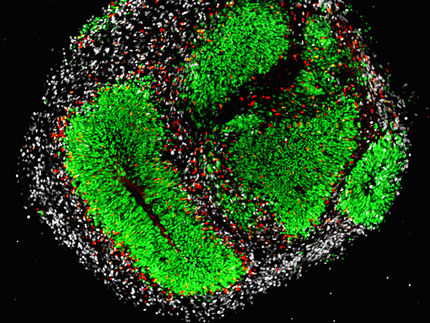New potential drug targets discovered for preventing prostate cancer cell growth
Advertisement
Researchers from VTT Technical Research Centre of Finland and the University of Turku have discovered four metabolic enzymes regulating prostate cancer cell growth. Inhibition of these enzymes prevents prostate cancer cell growth in cultured cells. This knowledge can be used to identify different subtypes of prostate cancer and for designing targeted therapies for prostate cancer.
Eicosanoid hormones, which are metabolites of arachidonic acid found in animal-based foods, such as eggs and meat, are essential regulators of normal bodily functions. Metabolic dysfunction relating to these bioactive lipids plays a role in many diseases. Prostate cancer cells use increased arachidonic acid metabolism and eicosanoid production to fuel their enhanced growth.
In addition to previously discovered enzymes that contribute to prostate cancer cell growth, the new study published by researchers from VTT and the University of Turku identifies four enzymes that regulate arachidonic acid metabolism and reveals that prostate cancer cell growth can be inhibited by preventing the functioning of these enzymes.
The study analysed the prevalence of enzymes involved in arachidonic acid metabolism in hundreds of prostate cancer samples, normal prostate samples, and other healthy tissues. The enzymes with the highest expression in prostate cancer samples were selected for further studies in prostate cancer cells. The scientists discovered that certain enzymes were more prevalent than others in different kinds of prostate cancers. This knowledge can be used to identify different subtypes of prostate cancer in the future. The findings of the study provide valuable new information and can potentially lead to the discovery of new ways to treat prostate cancer.
Original publication
"Arachidonic Acid Pathway Members PLA2G7, HPGD, EPHX2, and CYP4F8 Identified as Putative Novel Therapeutic Targets in Prostate Cancer."; The American Journal of Pathology, Volume 178, Issue 2, Pages 525–536, 2011.
Most read news
Original publication
"Arachidonic Acid Pathway Members PLA2G7, HPGD, EPHX2, and CYP4F8 Identified as Putative Novel Therapeutic Targets in Prostate Cancer."; The American Journal of Pathology, Volume 178, Issue 2, Pages 525–536, 2011.
Organizations
Other news from the department science

Get the life science industry in your inbox
By submitting this form you agree that LUMITOS AG will send you the newsletter(s) selected above by email. Your data will not be passed on to third parties. Your data will be stored and processed in accordance with our data protection regulations. LUMITOS may contact you by email for the purpose of advertising or market and opinion surveys. You can revoke your consent at any time without giving reasons to LUMITOS AG, Ernst-Augustin-Str. 2, 12489 Berlin, Germany or by e-mail at revoke@lumitos.com with effect for the future. In addition, each email contains a link to unsubscribe from the corresponding newsletter.



























































